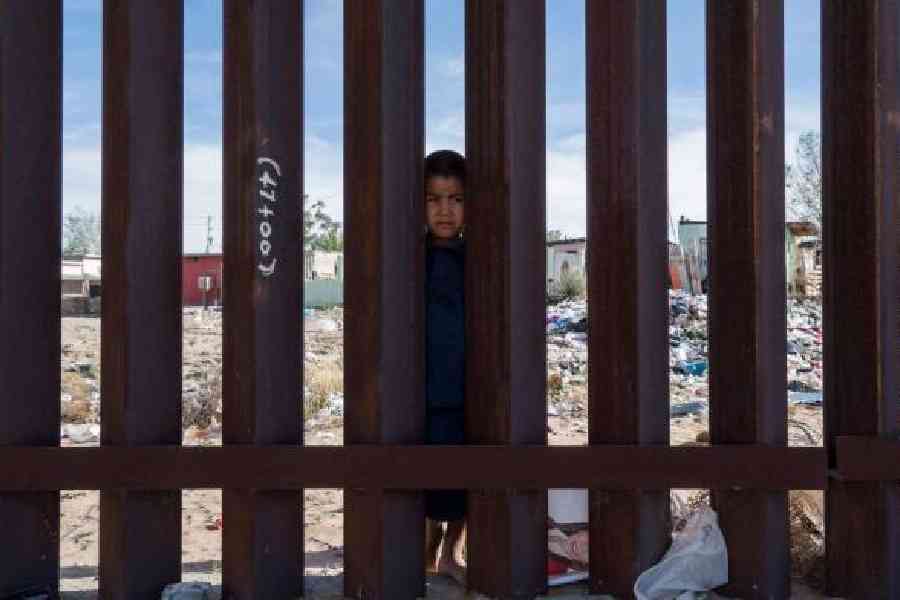Book- The Wind Knows My Name
Author-Isabel Allende
Published By- Bloomsbury
Price- Rs 599
Isabel Allende’s latest offering is both a chronicle of times past and a commentary on times present. Beginning in the turbulent November of 1938 in Vienna, it traces the strangely intertwined lives of the following characters: Samuel Adler — his parents were victims of the Holocaust while the five-year-old Samuel managed to survive because his mother had sent him to England via the Kindertransport — Leticia Cordero — another child survivor but of the State-sponsored massacre at El Mozote in El Salvador — Marisol and Anita Diáz — a mother-daughter duo who have illegally crossed the border walking and sitting on top of trains all the way from El Salvador to the United States of America to escape the human trafficking mafia — and Selena Durán — a determined social-worker who has made it her life’s mission to reunite the children who have been forcefully separated at the border from their parents by the Trump administration while seeking asylum in the US. The narrative spans several continents and decades, beginning just before the Second World War in Austria and reaching the middle of the pandemic in September 2020 in the US.
Unlike many of Allende’s other works, The Wind Knows My Name does not employ magic realist elements. Instead, the writer turns the narrative into a gritty account of the political turbulence, corruption and violence that are wrecking the Central and South American nations and the extreme vulnerability especially of women and children in these countries. The novel portrays the resistance of parents, mostly mothers, to the oppression faced by the minority or the powerless — Rachel Adler, Edgar Cordero and Marisol Diáz all fight to survive, but more so to save their children from the onslaught of the strong on the weak. Allende has portrayed strong-willed, resilient women in many of her works and this one is no exception. In The Wind Knows My Name, the host of strong women, from Rachel to Selena, find consolidated expression in the women of the Durán family who are said to always have been “… a family of women on their own,from the eldest of the bloodline, who at eighty-four years old, deformed by arthritis and slightly senile, was still the matriarch of her small tribe.”
Allende’s narrative moves back and forth in time, charting the lives of young Samuel, Leticia and Anita — she is almost blind from an accident — who are all trying to cope with their loss and trauma in multifarious ways. Curiously enough, this poignant narrative of loss and trauma also expands outwards to embrace the ideas of hope and altruistic love. Frank Angileri, an apparently amoral and ferociously ambitious young lawyer, is initially moved by Selena’s physical charms to help her cause of aiding children separated from their parents but he eventually discovers true love and becomes seriously involved in the cause. Samuel, Anita and Leticia go on to form a unique family unit where the loss of each member of the family is compensated for by the love and care they share for one other. Anita’s enabling fiction of Azabahar, a star where people and animals can travel to irrespective of whether they are dead or alive and may live in complete bliss, is not just a child’s imagination of an alternative universe free from the cruelties of the real world that she has experienced. Azabahar is also the place all peace-loving people want this earth to become and, as Samuel says, it is to be experienced only with the heart. Anita, a precocious eight-year-old, has already grasped the metaphysical oneness of the world and its inhabitants. Living in a detention centre, separated from her mother, Anita thinks that Marisol will definitely be able to find her because she believes that “No, we’re not lost. The wind knows my name. And yours too. Everyone knows where we are.”
Through short chapters juxtaposing the life stories of each important character, the narrative moves rapidly. It is a trenchant critique of the policies of the previous US government; it is also a document of the political instability of the nations lying south of the US border and the precarious lives of the inhabitants of those nations. In the Author’s Note, Allende makes it clear that much of the inspiration for the novel has come from her first-hand experience of working with refugees globally. It is a timely narrative intervention in today’s world where the crisis of the homeless and the Stateless is reaching an alarming proportion and everyone is in search of their personal Azabahar.










